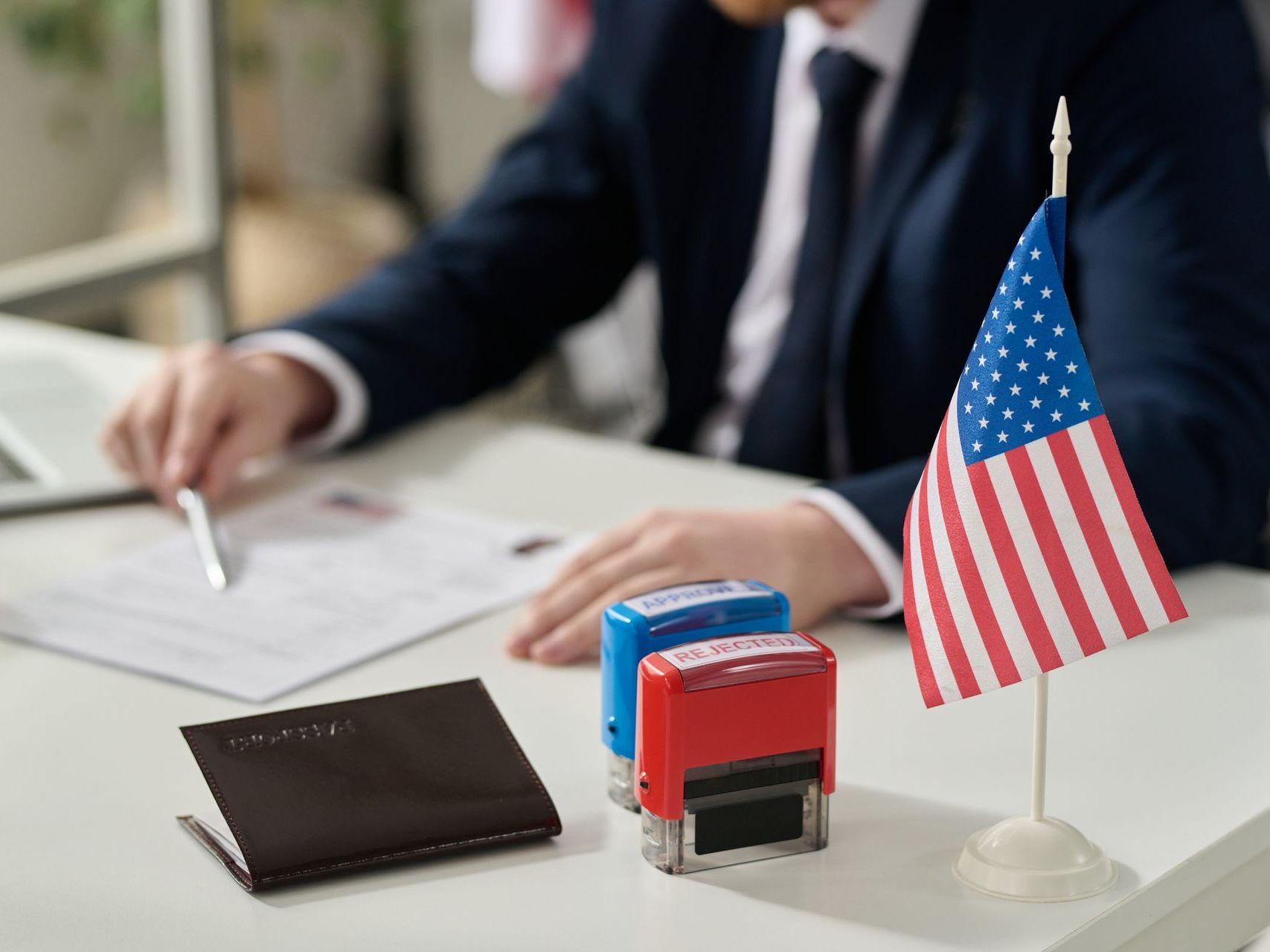Bởi Andy Nguyen
•
20 tháng 3, 2020
Under certain circumstances yes for example U.S. Citizen file I-130 for the child to apply for nonimmigrant K-4 visa, this will entitle him or her to come to the U.S. to live and work to go to school while visa petition is pending. However, on Non-Immigrant Visas such as K-1 visa would have to wait outside. What Are The Most Common Reasons A Family-Based Visa Is Denied? Fraud, grounds of inadmissibility, lack of sponsorship. Who Qualifies To Submit A Provisional Waiver In The United States? To be eligible for a provisional unlawful presence waiver, you must meet ALL of the following conditions: Be physically present in the United States to file your application and provide biometrics. Be 17 years of age or older. Be in the process of obtaining your immigrant visa and have an immigrant visa case pending with the Department of State (DOS) because you: Are the principal beneficiary of an approved Form I-130, Petition for Alien Relative; an approved Form I-140, Petition for Alien Worker; or an approved Form I-360, Petition for Amerasian, Widow(er), or Special Immigrant who has paid the immigrant visa processing fee; Have been selected by DOS to participate in the Diversity Visa (DV) Program (that is, you are a DV Program selectee); Are the spouse or child of a principal beneficiary of an approved immigrant visa petition who has paid the immigrant visa processing fee to DOS; or Are the spouse or child of a DV Program selectee (that is, you are a DV Program derivative) Be able to demonstrate that refusal of your admission to the United States will cause extreme hardship to your U.S. citizen or Legal Permanent Resident spouse or parent. Believe you are or will be inadmissible only because of a period of unlawful presence in the United States that was: More than 180 days, but less than 1 year, during a single stay (INA section 212(a)(9)(B)(i)(I)); or 1 year or more during a single stay (INA section 212(a)(9)(B)(i)(II)). Meet all other requirements for the provisional unlawful presence waiver, as detailed in 8 CFR 212.7(e) and the Form I-601A and its instructions. You are not eligible for a provisional unlawful presence waiver if any of the following conditions apply to you: You do not meet all of the conditions listed under the eligibility mentioned above. You are in removal proceedings that have not been administratively closed. At the time of filing, you are in removal proceedings that have been administratively closed but have been placed back on the Executive Office for Immigration Review (EOIR) calendar to continue your removal proceedings. You have a final order of removal, exclusion, or deportation (including an in-absentia order of removal under INA 240(b)(5)). If you have a final order of removal, exclusion, or deportation, you can only seek a provisional unlawful presence waiver if you have applied for, and we have already approved Form I-212, Application for Permission to Reapply for Admission into the United States After Deportation or Removal at the time you file the Form I-601A. You do not meet one or more of the requirements outlined in the Form I-601A and its instructions. What Grounds Of Inadmissibility Does The Waiver Apply To? I-601A Unlawful Presence I-601 Waiver: INA section 212(a)(1) Health-related grounds of inadmissibility; INA section 212(g)(1) Health-related grounds of inadmissibility due to a communicable disease of public health significance defined in 42 CFR 34.2(b) including Class A tuberculosis, chancroid, gonorrhea, granuloma inguinale, lymphogranuloma venereum, syphilis (infectious), leprosy (infectious), etc.; INA section 212(g)(2)(C) LPR applicants seeking an exemption of a vaccination requirement based on religious beliefs or moral convictions; INA section 212(g)(3) Physical or mental disorder associated with harmful behavior that poses, has posed, or will pose a threat to your safety, property, or welfare and that of others; INA section 212(2)(2) Certain criminal grounds of inadmissibility; INA section 212(a)(6)(c) Immigration fraud and misrepresentation; INA section 212(a)(3) Immigrant membership in a totalitarian party; INA section 212(a)(6)(E) Alien smugglers; INA section 212(a)(6)(F) Aliens subject to a civil penalty; INA section 212(a)(9)(B) Aliens subject to the 3-year or 10-year bar due to unlawful presence in the United States; What If A Person Is Already Outside The US Or Is Scheduled For An Immigrant Visa Interview Outside The US? The individual would attend the immigrant visa interview at their respective U.S. Consulate/Embassy and Consular Officer would hand him or her instructions on what waiver he or she needs to seek and which grounds of inadmissibility he or she needs waived. What If A Person Is Currently In Removal Proceedings Or Is Subject To A Final Order Of Removal? You have a final order of removal, exclusion, or deportation (including an in-absentia order of removal under INA 240(b)(5)). If you have a final order of removal, exclusion, or deportation, you can only seek a provisional unlawful presence waiver if you have applied for, and we have already approved Form I-212, Application for Permission to Reapply for Admission into the United States After Deportation or Removal at the time you file the Form I-601A. If A Person’s I601A Waiver Is Denied, Is It Possible To Appeal? USCIS provides no appeals process for denials of applications for a provisional unlawful presence waiver. Similarly, the agency will not accept a request to reopen a case or a request that it reconsider its decision. Therefore, it is crucial that you submit a complete application the first time around. applicants may resubmit a new waiver application showing new or additional evidence. For more information on Living In US With A Pending Visa Petition, an initial consultation is your next best step. Get the information and legal answers you are seeking by calling (817) 704-3303 today.




